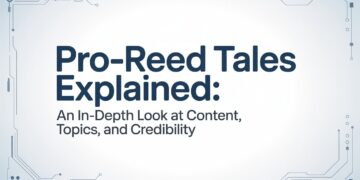Table of Contents:
- The Growing Need for AI in Lease Management
- Automated Lease Data Extraction and Management
- Compliance Monitoring and Regulatory Adaptation
- Centralized Document Storage and Search Capabilities
- Advanced Analytics and Reporting Tools
- Automated Notifications and Critical Date Tracking
- Seamless Integration and API Connectivity
- User Experience and Accessibility
- Security, Audit Trails, and Data Protection
- The Future of AI Lease Management Systems
The Growing Need for AI in Lease Management
The complexity of modern real estate portfolios has made traditional lease management systems increasingly inadequate. Today’s property professionals manage more leases across multiple asset classes, geographic regions, and client types than ever before. With the rise in multifaceted leases, market volatility, and tighter regulatory controls, property professionals require digital solutions that automate workflows, minimize errors, and keep pace with business growth. Manual data entry, spreadsheet tracking, and fragmented communication are no longer sufficient for businesses seeking a competitive edge. This environment has driven innovators across the real estate sector to develop AI-powered lease management solutions—platforms that deliver real-time insights, automate data entry, and centralize key administrative functions.
Adopting AI in lease management is no longer a luxury but a necessity for organizations aiming to avoid costly oversights and stay competitive. The ability to process, monitor, and analyze hundreds of leases efficiently can dramatically improve margins and mitigate risks across commercial and residential portfolios. Industry leaders are responding accordingly, integrating AI throughout their operations to stay ahead of the curve. This shift is about technology adoption and reinventing how lease portfolio risks and opportunities are identified and acted upon.
Automated Lease Data Extraction and Management
One of the most transformative features of AI lease management platforms is their ability to extract and organize data from leases with remarkable speed and accuracy. These intelligent platforms leverage natural language processing and machine learning to interpret many document formats—PDFs, scanned images, digital contracts, and handwritten notes. They excel at standardizing contract terms, critical dates, payment schedules, renewal clauses, and obligations, ensuring that no detail goes unchecked. The result is far less manual entry, drastically reducing the likelihood of human error while saving considerable time and employee resources.
For example, instead of wading through dozens of page-long leases to locate escalation clauses or analyze critical rent increase schedules, an AI-powered tool instantly summarizes this information in a structured dashboard, ready for review. This is a game-changer for scaling operations and managing complex portfolios that span different markets, languages, and legal structures. Reliable data extraction also powers downstream workflows, enabling better forecasting, customized reporting, and timely compliance management. As AI continues to learn from new data, accuracy and speed only improve, while teams are empowered to make critical business decisions based on trustworthy lease information.
Compliance Monitoring and Regulatory Adaptation
Regulations governing lease agreements are often intricate, frequently updated, and can vary dramatically by geographic area and property type. Property managers must guarantee that each lease contains proper legal language and complies with local, state, and federal requirements. Advanced AI systems offer real-time compliance monitoring—scanning each document for non-standard language, missing clauses, and outdated terms. When a jurisdictional change occurs or a new industry practice emerges, the system can flag affected leases, automate reminders, and suggest necessary amendments, allowing teams to stay compliant with far less manual review.
This proactive approach to compliance is essential for reducing legal risk and reassuring tenants and investors that lease obligations are consistently met. Platforms integrating compliance workflows help companies respond to new legislative requirements or public health policies without the frantic scramble of last-minute updates. Turning to AI for compliance in the real estate industry has quickly become a best practice, greatly reducing the chances of overlooked details that could lead to costly lawsuits, fines, or operational interruptions. Compliance tracking also provides a competitive advantage, positioning organizations as trusted partners in a complex regulatory environment.
Centralized Document Storage and Search Capabilities
As lease portfolios grow, so does the challenge of managing hundreds or thousands of unique documents while remaining audit-ready. Leading AI lease management systems feature centralized digital repositories where every lease, addendum, amendment, and correspondence is securely stored and easily searchable. Digital centralization eliminates the confusion and chaos often resulting from disconnected folders, legacy databases, or paper files scattered across offices. With every document at their fingertips, property professionals can quickly and confidently respond to auditor requests, investor queries, or tenant disputes.
The top systems go beyond mere storage; they support sophisticated metadata tagging, allowing users to locate leases by building, date, tenant, rent amount, or any combination of key filters. Smart search functionalities also leverage AI, enabling “fuzzy” or semantic searches where even ambiguous requests surface relevant contracts. This streamlining is vital during audits, due diligence, property sales, or any situation requiring immediate, accurate access to documentation. Centralization ultimately brings order to previously unmanageable document chaos, reduces risk, and ensures all stakeholders always operate with the latest, most authoritative information.
Advanced Analytics and Reporting Tools
A top-tier AI lease management platform provides sophisticated analytics and customizable reporting mechanisms built directly into the system. These advanced features allow asset managers, accountants, and executives to visualize trends, track lease performance, measure occupancy rates, and project revenues across entire portfolios. Automated, interactive dashboards break down even the largest, most complex datasets into actionable insights, such as identifying at-risk leases, forecasting shortfalls or surpluses, scrutinizing expense patterns, and measuring compliance rates.
Custom reports can be tailored to meet specific stakeholders’ needs—owners, investors, or regulators—and scheduled to deliver regular updates automatically, minimizing time spent on data compilation. With powerful analytics in hand, organizations can respond quickly to market shifts, tenant requests, and new strategic priorities. Analytics-driven planning unlocks powerful growth strategies, such as optimizing lease terms to match local market trends or identifying underperforming assets for targeted intervention. Over time, continuous reporting also helps demonstrate value creation and transparency, which are key for attracting and retaining institutional investors.
Automated Notifications and Critical Date Tracking
One of the recurring pitfalls in lease management is missing important dates—renewals, notice periods, insurance expirations, and rent escalation deadlines. Sophisticated AI lease management systems eliminate such risk through highly configurable notification engines, ensuring that reminders are delivered to the right team members with enough lead time to respond. Such systems replace unreliable manual calendars or sticky notes, creating a systematic approach to critical date management that’s scalable for organizations of any size.
Top platforms allow for full customization of notification workflows, letting users assign responsibilities, create escalation procedures, and implement backup alerts as safeguards. This is especially vital for multi-property managers or larger organizations where accountability must be distributed across functional lines. Centralized, automated notifications foster a culture of proactive management instead of reactive damage control, supporting tenant retention, negotiation leverage, and timely compliance.
Seamless Integration and API Connectivity
The capability of an AI lease management system to integrate with other business-critical applications defines its true operational value. The best platforms offer open APIs and seamless, pre-built integrations with popular property management software, CRM systems, ERP platforms, and financial accounting solutions. This enables data to flow without friction, eliminating redundant data entry and ensuring that all parts of the business operate on a single, up-to-date source of truth.
Seamless integration improves operational coherence and supports advanced analytics and workflow automation. For example, when lease information is automatically sent to billing systems, rent increases trigger updated invoices without human intervention. This saves considerable administrative time while also reducing risk. Organizations that select AI lease management tools with strong integration capabilities will find it easier to future-proof their operations and scale rapidly in response to opportunities.
User Experience and Accessibility
No matter how powerful an AI lease management platform is, its success ultimately hinges on usability. Modern solutions prioritize intuitive interfaces, simple navigation, and the ability for users to customize dashboards and reporting modules. In practice, this means less time spent training staff or troubleshooting adoption hurdles and more time spent on strategic work. Mobile access is non-negotiable for multi-location or remote teams, empowering professionals to review agreements, approve negotiations, or upload documentation while in the field or working from home.
Best-in-class solutions also offer advanced access controls, letting administrators set permissions by user role, location, or function—essential for collaboration across large organizations while maintaining strict data confidentiality. Training resources, from built-in tutorials to on-demand webinars and responsive customer support, help ensure ongoing adoption and satisfaction. When user experience is prioritized, organizations can implement new solutions faster and with higher returns on their investment.
Security, Audit Trails, and Data Protection
Transitioning to digital lease management raises reasonable concerns about data security and regulatory compliance. The most trusted AI platforms address these needs with robust security measures, including 256-bit encryption, multifactor authentication, and redundant cloud backups to protect against cyber threats and accidental data loss. Security standards should extend to document storage and system access—every login, change, or deletion is logged and time-stamped for accountability.
Comprehensive audit trails are generated automatically, making it easy to review every document action and supporting effortless compliance during regulatory reviews or audits. Customizable permissions, ongoing security updates, and vulnerability testing combine to reduce risk exposure further. Strong security and transparent audit trails are desirable for organizations managing large portfolios or confidential financial data. They are essential to maintaining trust, satisfying investors, and complying with complex laws such as GDPR or CCPA.
The Future of AI Lease Management Systems
As the adoption of AI in lease management becomes mainstream, system capabilities are only set to expand. Emerging AI-powered features include predictive analytics to anticipate lease renewals, tenant churn, and potential disputes before they arise. Market benchmarking and automated contract negotiation tools are being refined, enabling organizations to position themselves advantageously in any cycle. Intelligent notifications and adaptive learning mean systems will continue to tailor recommendations based on unique business patterns, ensuring that solutions evolve as needs change.
Looking ahead, organizations that embrace these advances in AI are better prepared to thrive amid evolving regulations, shifting tenant expectations, and a landscape where efficiency and precision are paramount. The future of lease management is no longer about simply keeping up—it’s about leading with insight, agility, and strategic vision. Choosing the right platform and prioritizing these advanced features will position property managers, landlords, and organizations to drive growth, build trust, and safeguard long-term success for years to come.
Do Read: The New Syntax of Innovation: How AI Is Helping Developers Write Smarter, Cleaner, and Faster Code


















